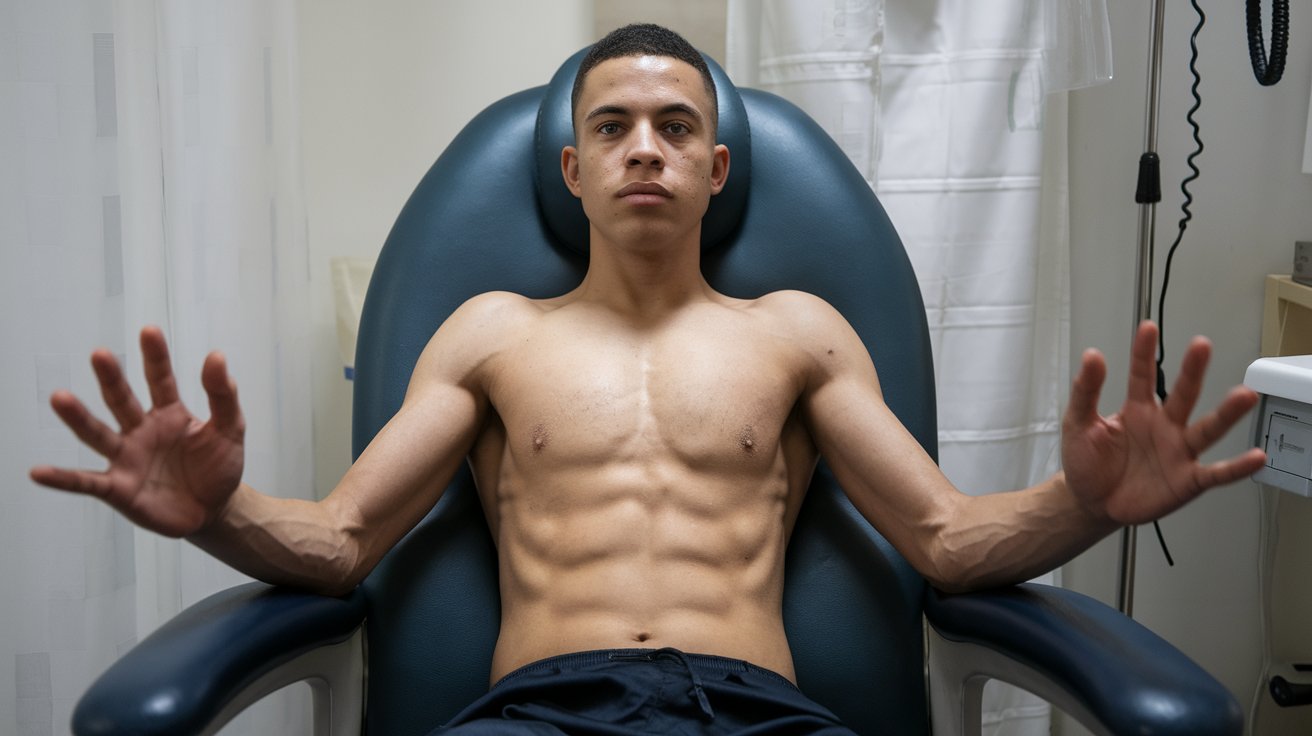
Congenital Hypomyelination Neuropathy is a rare genetic disorder affecting the nervous system. It primarily impacts the myelin sheath, the protective covering of nerves, leading to severe muscle weakness and sensory issues from birth. This condition can be life-altering, often requiring extensive medical care and support. Understanding this disorder is crucial for families and healthcare providers managing its challenges. In this post, we will explore 30 essential facts about Congenital Hypomyelination Neuropathy, shedding light on its causes, symptoms, diagnosis, and treatment options. Whether you're a parent, caregiver, or simply curious, these insights will help you grasp the complexities of this rare condition.
Key Takeaways:
- Congenital Hypomyelination Neuropathy (CHN) is a rare genetic disorder affecting nerves, causing muscle weakness and sensory issues. Early diagnosis and supportive care are crucial for managing symptoms and improving quality of life.
- Understanding the genetic basis of CHN can help in diagnosing and potentially treating the disorder. Supportive care, including physical and occupational therapy, can improve muscle strength and coordination, and enhance mobility.
What is Congenital Hypomyelination Neuropathy?
Congenital Hypomyelination Neuropathy (CHN) is a rare genetic disorder affecting the peripheral nerves. It disrupts the myelin sheath, which insulates nerve fibers, leading to severe motor and sensory issues.
- CHN is a genetic disorder that affects the peripheral nervous system.
- The condition is present at birth, hence the term "congenital."
- CHN results from mutations in specific genes responsible for myelin production.
- The disorder is characterized by reduced or absent myelin in the peripheral nerves.
- CHN is part of a group of disorders known as hereditary motor and sensory neuropathies.
Symptoms of Congenital Hypomyelination Neuropathy
Symptoms of CHN can vary widely but generally include muscle weakness, sensory loss, and developmental delays. Early diagnosis is crucial for managing the condition.
- Muscle weakness is a common symptom, often noticeable in infancy.
- Delayed motor milestones such as sitting, crawling, and walking are typical.
- Sensory loss can affect the ability to feel pain, temperature, and touch.
- Hypotonia, or reduced muscle tone, is frequently observed.
- Areflexia, the absence of reflexes, is another hallmark of CHN.
Causes and Genetics
Understanding the genetic basis of CHN can help in diagnosing and potentially treating the disorder. It involves specific gene mutations that disrupt normal nerve function.
- CHN is often caused by mutations in the MPZ gene.
- The disorder can also result from mutations in the PMP22 gene.
- CHN is typically inherited in an autosomal recessive pattern.
- Both parents must carry a copy of the mutated gene for a child to be affected.
- Genetic testing can confirm the presence of these mutations.
Diagnosis and Testing
Diagnosing CHN involves a combination of clinical evaluation, genetic testing, and sometimes nerve biopsies. Early diagnosis can lead to better management of symptoms.
- Clinical evaluation includes a thorough physical and neurological exam.
- Genetic testing can identify specific mutations associated with CHN.
- Nerve conduction studies measure the speed of electrical impulses in nerves.
- Nerve biopsies may be performed to examine the myelin sheath.
- MRI scans can help visualize nerve abnormalities.
Treatment and Management
While there is no cure for CHN, various treatments can help manage symptoms and improve quality of life. These treatments focus on supportive care and symptom relief.
- Physical therapy can help improve muscle strength and coordination.
- Occupational therapy assists with daily activities and fine motor skills.
- Orthopedic devices like braces can support weak muscles.
- Pain management strategies include medications and physical therapy.
- Regular monitoring by a neurologist is essential for managing the condition.
Living with Congenital Hypomyelination Neuropathy
Living with CHN requires ongoing care and support. Families and caregivers play a crucial role in providing the necessary assistance and encouragement.
- Support groups can offer emotional and practical support for families.
- Educational accommodations may be needed for children with CHN.
- Assistive devices like wheelchairs can enhance mobility.
- Nutritional support is important for overall health and well-being.
- Regular follow-ups with healthcare providers ensure optimal care.
Final Thoughts on Congenital Hypomyelination Neuropathy
Congenital Hypomyelination Neuropathy (CHN) is a rare genetic disorder affecting the nervous system. Understanding its symptoms, causes, and treatments can help manage the condition better. Early diagnosis is crucial for improving quality of life. Genetic testing plays a significant role in identifying CHN, allowing for early intervention and support.
Treatment focuses on managing symptoms and improving daily functioning. Physical therapy, occupational therapy, and sometimes medications can help. Support from healthcare professionals, family, and community is essential for those living with CHN.
Raising awareness about CHN can lead to better resources and support for affected individuals. Sharing knowledge and experiences can make a difference in the lives of those dealing with this condition. Stay informed, seek support, and advocate for more research to improve understanding and treatment options for CHN.
Frequently Asked Questions
Was this page helpful?
Our commitment to delivering trustworthy and engaging content is at the heart of what we do. Each fact on our site is contributed by real users like you, bringing a wealth of diverse insights and information. To ensure the highest standards of accuracy and reliability, our dedicated editors meticulously review each submission. This process guarantees that the facts we share are not only fascinating but also credible. Trust in our commitment to quality and authenticity as you explore and learn with us.


